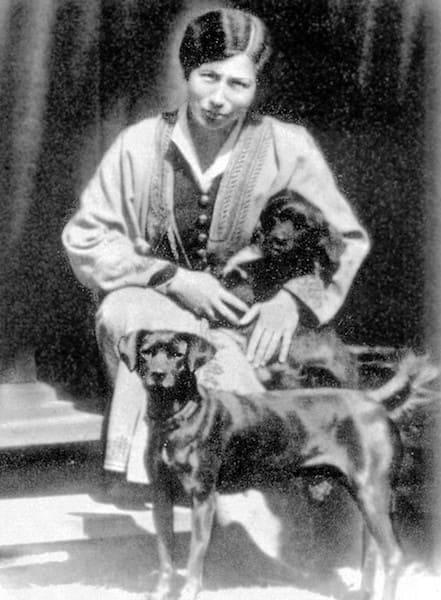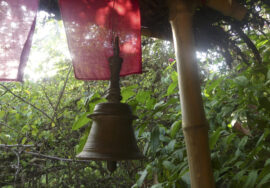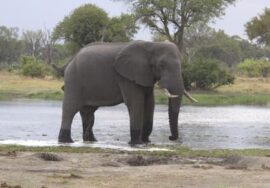Wisdom of the dog
This year we enter the year of the dog in Chinese astrology, back to the earth element. I’m so lucky to have dogs around, they are such a wonderful teachers.


Here is what Mira Alfassa, called the Mother, says about dogs and faithfulness:

Question: Aren’t dogs more faithful than men?
Certainly! Because it is their nature to be faithful, and they have no mental complications. What prevents men from be-ing faithful are their mental complications. Most men are not faithful because they fear being duped. You don’t know what it is to be duped? They fear being deceived, being exploited. They fear… Behind their faithfulness there is still a very big egoism which is more or less hidden, and there is always that bargaining, more or less conscious, of give-and-take: one gives oneself to someone but whether one tells oneself this or not, one expects something in exchange. You are faithful, but also want others to be faithful to you, that is, look after you, to be quite sweet to you, and, especially not to try to profit by your faithfulness. None of these complications are there in the dog, for its mind is very rudimentary. It does not have this marvellous capacity of reasoning that men have, a capacity which has made them commit so many stupidities.
Only one cannot turn and go back. One cannot become a dog again. So one must become a higher man and have the quality of the dog on a higher plane; that is, instead of its being a half-conscious fidelity, and in any case very instinctive, a sort of need that ties it down, it must be a willed, conscious fidelity, and especially above all egoism. There is a point where all the virtues are united: it is a point that goes beyond the ego. If we take this faithfulness, if we take devotion, take love, the meaning of ser- vice, all these things, when they are above the egoistic level, they meet, in the sense that they give themselves and do not expect anything in exchange. And if you climb one step higher, instead of its being done with the idea of duty and abnegation, it is done with an intense joy which carries within itself its own reward, which needs nothing in exchange, for it carries its joy in itself. But then, for that you must have climbed quite high and must no longer have that turning back upon yourself which, of all things, pulls you down lowest. That kind of… that sympathy, full of self- pity, wherein one cajoles and caresses oneself and says, “Poor me!”, that, indeed, is something terrible, and one does this so constantly, without being aware of it. This turning back upon oneself, a kind of degrading self-compassion, in which one tells oneself in a tone so full of pity, “Nobody understands me! No one loves me! No one cares for me as people should!” etc., and one goes on and on…. And now this is really terrible, it draws you down into a hole immediately.
One must have gone far beyond all that, left it very far behind oneself, in order to truly have the joy of faithfulness, the joy of self-giving, which does not care at all, no, indeed, not at all, in any way, whether it is properly received or gets the adequate response. Not to expect anything in exchange for what one does, not to expect anything, not through asceticism or a sense of sacrifice but because one has the joy of the consciousness one is in and that is enough; this is much better than all one can receive, from whomsoever it be; but that again is something else. There are quite a few stages between the two.
— The Mother (Question and Answers,Volume-6, page no.182-184)






